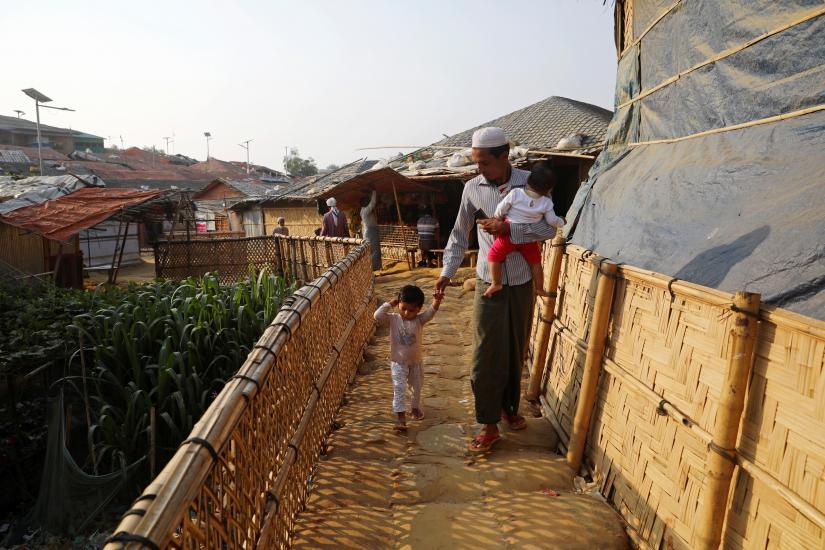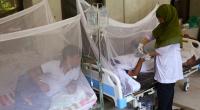 With a pregnancy rate of 3 percent among the women, an estimated 60,000 to 64,000 babies have been born since more than 750,000 refugees took shelter in Cox’s Bazar in August 2017 fleeing the persecution of the Myanmar military.
With a pregnancy rate of 3 percent among the women, an estimated 60,000 to 64,000 babies have been born since more than 750,000 refugees took shelter in Cox’s Bazar in August 2017 fleeing the persecution of the Myanmar military.
Reluctance to take family planning methods, especially among the women causes the soaring births, health officials said.
An estimated 60 to 70 babies are born in refugee camps daily with a few are born at the nearby government hospitals, Director of Chittagong Divisional health office Dr Hasan Sharia Kabir told Bangla Tribune.
However, Cox’s Bazar Civil Surgeon Abdul Motin said the government has no actual data on the birth of Rohingya children.
An estimated 60,000 to 64,000 babies have been over the past two years, said the official citing a survey conducted by UNHCR and UNICEF on the Rohingyas last year. RELUCTANCE TO FAMILY PLANNING
RELUCTANCE TO FAMILY PLANNING
Bangladesh currently hosts 1.1 million of Rohingya people. “The pregnancy rate among Rohingya women now stands at 3 percent,” said Dr Abdus Salam, deputy director of Chittagong Divisional health office.
Rohingya women were reluctant to accept birth control methods.
Senior Scientific Officer of icddr,b Dr ASM Alamgir said it is very difficult to bring Rohingya women under family planning programme.
Lack of knowledge among the refugee women plays a role in their reluctance to accept birth control methods, according to this official.
“At first, birth control pills had been provided, which they did not consume. We found the pills abandoned at their camps,” said Deputy Director Salam, who was Cox’s Bazar civil surgeon during the 2017 Rohingya influx before promoting to the divisional health office.
Later Rohingya women were brought under an “injection programme” that was somewhat effective till the government stopped the supply of medical equipment, he added.
At present, UNFP has been carrying out the family planning programmes for the Rohingyas and supplying different birth control kits, but which are not adequate.
Icddr,b official Alamgir said since the beginning they are advising for a long-term method including the five-year implant.
“As the Rohingyas never hared of these at their homeland, it has been very difficult to convince them,” he said.
 National
National
41423 hour(s) 17 minute(s) ago ;
Afternoon 06:11 ; Tuesday ; Jul 08, 2025
Rohingya births soar due to reluctance over birth control
Send
Jakia Ahmed
Published : 22:46, Aug 25, 2019 | Updated : 22:51, Aug 25, 2019
Published : 22:46, Aug 25, 2019 | Updated : 22:51, Aug 25, 2019
0 ...0 ...
/hb/
Topics: Top Stories
- KOICA donates medical supplies to BSMMU
- 5 more flights to take back British nationals to London
- Covid19: Rajarbagh, Mohammadpur worst affected
- Momen joins UN solidarity song over COVID-19 combat
- Covid-19: OIC to hold special meeting
- WFP begins food distribution in Cox’s Bazar
- WFP begins food distribution in Cox’s Bazar
- 290 return home to Australia
- Third charter flight for US citizens to return home
- Dhaka proposes to postpone D8 Summit
Unauthorized use of news, image, information, etc published by Bangla Tribune is punishable by copyright law. Appropriate legal steps will be taken by the management against any person or body that infringes those laws.
Bangla Tribune is one of the most revered online newspapers in Bangladesh, due to its reputation of neutral coverage and incisive analysis.
F R Tower, 8/C Panthapath, Shukrabad, Dhaka-1207 | Phone: 58151324; 58151326, Fax: 58151329 | Mob: 01730794527, 01730794528


